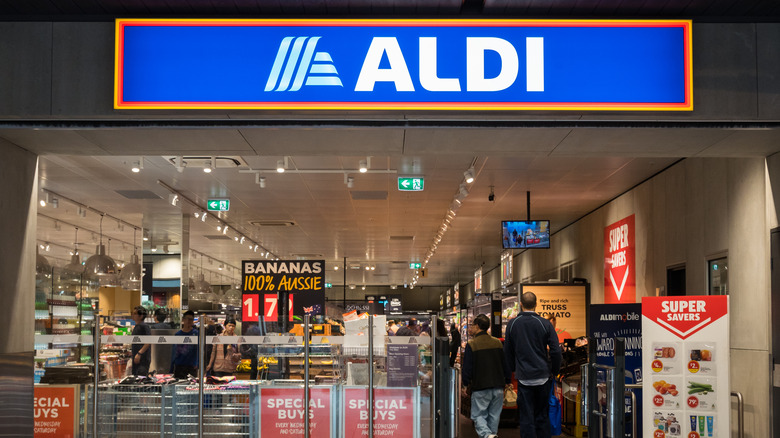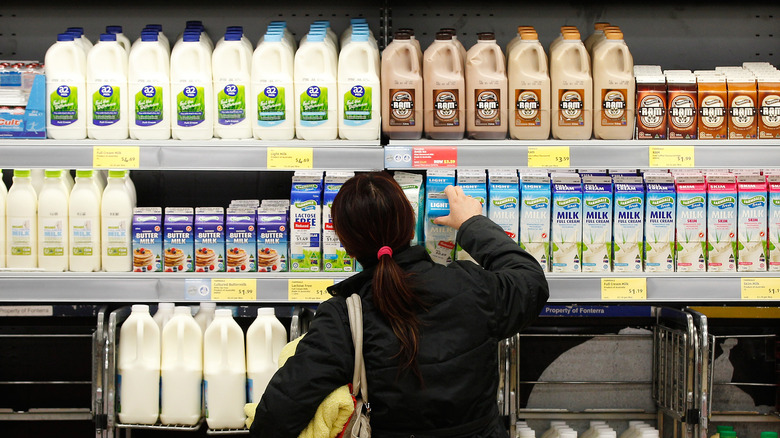The Real Reason Aldi Australia Is Permanently Lowering The Price Of Some Foods
Many households across the world have been experiencing financial strain since the start of the COVID-19 pandemic. In Australia, lockdowns, restrictions, and price increases as a result of disrupted supply chains have led to financial uncertainty for many families, with 42% of Australians now reporting that price is more important to them when shopping than ever. According to independent research commissioned by Aldi Australia, one in five Australian families have reported being unable to afford their weekly grocery bill since the pandemic began, while 43% said they have been experiencing financial pressure.
To help alleviate some of the financial worry faced by many families in the country, Aldi Australia has just announced their plan to do their part by reducing the price of their groceries. Although the German grocery store's prices are already low, Aldi Australia has already been dropping the prices of some of their essential items since the spread of the virus started, and they have just announced their plans to make some price reductions permanent.
Aldi will lower the price on some of its household grocery staples
The grocery chain plans to permanently reduce the prices on 10% of its family grocery staples to help ease some of this financial pressure. The price drop will apply to everyday grocery items, including essentials like eggs, cheese, yogurt, tea, juice, meat, and snacks, with the price of some items falling as much as 30%, according to Cruise 1323.
"We began reducing the prices of our already price-leading products at the start of the pandemic, and these permanent reductions reaffirm our continued commitment that ALDI will never be beaten on the price of your weekly grocery shop," Oliver Bongardt, Aldi Australia's managing director, said of the price changes in a statement. "ALDI has, for the last 20 years, delivered on its price promise to offer shoppers high quality products at low prices. We know we save Australian customers more than $2.4 billion every year, when compared to shopping at other supermarkets, and we intend to build on that." Bongardt also assured shoppers that the new low price would not mean a reduction in quality.

